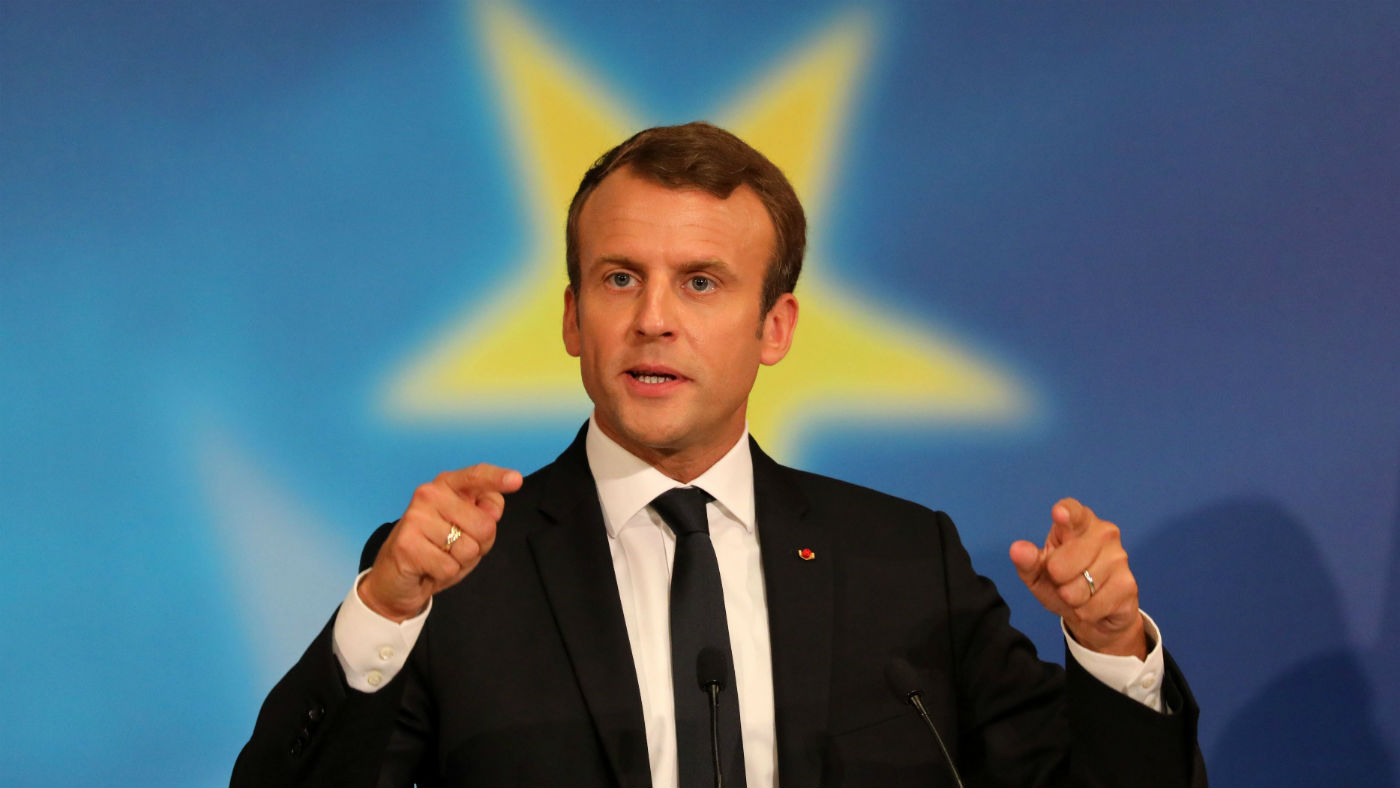Europe at a crossroads: will the EU survive 2018?
In Depth: as euroscepticism gathers pace and Merkel struggles to form a government, Macron is seeking to take the lead

A free daily email with the biggest news stories of the day – and the best features from TheWeek.com
You are now subscribed
Your newsletter sign-up was successful
The EU has been reeling since the double shock of the Brexit referendum and the election of Donald Trump, who is both anti-EU and anti-Nato.
As dawn breaks in 2018, some commentators see cause for optimism. “Brexit increasingly looks like a self-harming decision no one would reasonably imitate,” says the EU Observer, and “a young and dynamic French president” is trying to “lead the way to relaunch the EU”.
But even as Emmanuel Macron charges ahead with his ambitious vision for the EU’s future, the bloc has a tricky few months ahead.
The Week
Escape your echo chamber. Get the facts behind the news, plus analysis from multiple perspectives.

Sign up for The Week's Free Newsletters
From our morning news briefing to a weekly Good News Newsletter, get the best of The Week delivered directly to your inbox.
From our morning news briefing to a weekly Good News Newsletter, get the best of The Week delivered directly to your inbox.
Eurosceptic populists performed phenomenally well in elections across Europe last year – most recently in the Czech Republic, which hosted a meeting of European far-right parties in December.
The rise of euroscepticism has led to concerns over the rule of law in Poland and Hungary. Alongside this, the Catalan separatist challenge is likely to divide Spain – and possibly the EU – throughout the year, while Switzerland’s relationship with the bloc is deteriorating.
Most pressingly perhaps, Angela Merkel is struggling to form a coalition government almost four months after Germany’s election. Austria has finally reached a coalition deal but this is a swing to the right with an agreement between the country’s Nazi-founded Freedom Party and the conservative People’s Party.
Britain’s shaky coalition between the Conservatives and the Democratic Unionist Party stumbles on, although the Northern Ireland Assembly collapsed last year. Italy’s March elections could pose another problem, as there is likely to be no clear winner.
A free daily email with the biggest news stories of the day – and the best features from TheWeek.com
“The erosion of the EU is one of the biggest dangers facing us in 2018 and beyond,” says Reiner Hoffmann, head of the confederation of German trade unions. “If we don’t act to stop it, the [EU’s] crisis of confidence could well turn into a real political crisis.”
The rule of law
The EU has begun extraordinary disciplinary measures against Poland over its judicial reforms.
The populist governments of Poland, the Czech Republic, Slovakia and Hungary are “refusing to accept EU law or implement majority decisions regarding migration issues, and are thereby disregarding the very rules they themselves signed up to,” says Deutsche Welle’s Bernd Riegert.
The relationship between Poland and Hungary is an “unprecedented test” for Brussels because of its potential to thwart other member states’ agendas in areas ranging from migration to the rule of law, the Financial Times reports, quoting Heather Grabbe, director of the Open Society European Policy Institute.
It may be tricky to find a consensus over how to deal with these countries “given that many right-wing populist parties have now joined other European governments, as well,” says Riegert.
Austria is the latest example. In Italy the nationalist Five Star Movement looks likely to do well in March elections.
Merkel and Macron
In a New Year’s Eve speech to the nation, German Interim Chancellor Angela Merkel outlined a vision for her fourth term that includes an alliance with French President Emmanuel Macron to strengthen Europe’s economic clout and control migration, while upholding values of tolerance and pluralism within the EU and abroad.
“Twenty-seven countries in Europe must be impelled more strongly than ever to remain a community,” Merkel said. “That will be the decisive question of the next few years. Germany and France want to work together to make it succeed.”
The relationship between the two nations’ leaders is the EU’s next big challenge.
“Macron needs Merkel to boost his gravitas and to get any of his ambitious eurozone reforms passed. And she needs him to re-energise her sagging image,” says the BBC’s Katya Adler.
But “for all the barnacles that now attach to her leadership, Merkel will not shrivel as a political force in 2018,” says The Guardian’s Anne McElvoy.
“Only she has the votes and personal heft to bring together a government. But the strains of the coalition will be intense, and her leadership will be more fraught than ever.”
Should the talks fail, Germany is likely to be headed for fresh elections.
Swiss tension creates Brexit headache
Switzerland’s political parties have united in anger after the EU “took the country’s financial services sector hostage in negotiations over a new trade treaty, a move that could set a precedent for Brexit talks,” says The Times.
Under EU financial regulations that came into force this week, Switzerland’s investment banks and companies trading in stocks and shares gained access to the European single market for only a year. But Brussels is demanding that Switzerland accept rulings by EU judges as a condition for services access to the single market.
In response, Switzerland’s outgoing president called for a referendum to clarify the country’s relationship with the EU.
The Swiss lesson will not be lost on the UK government “because the equivalence model, in which financial regulations are in effect equal to EU legislation, is the preferred Brussels option for the City of London after Brexit in a trade deal that will not include services if Britain leaves Europe’s single market,” says The Times.
“Equivalence would mean that City access to the single market will be hostage to every political dispute between the EU and Britain after Brexit,” a Brussels diplomat told the paper.